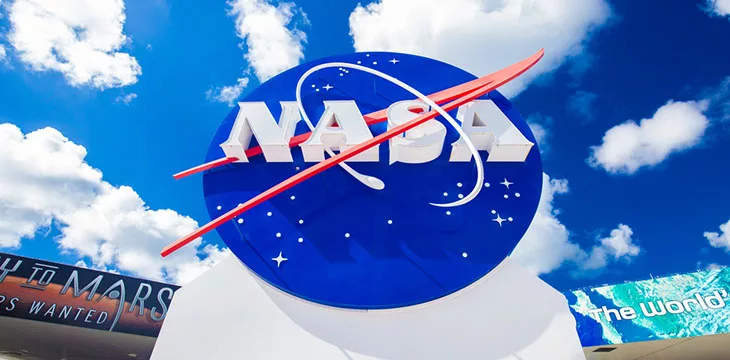|
Getting your Trinity Audio player ready...
|
Data security is a hot topic these days, but few solutions propose sending the information to the moon.
Yet, that’s exactly what a partnership between NASA, Florida-based computing firm Lonestar, and the tiny British island of the Isle of Man plans to do. The British Crown Dependency will use stamps selected by its post office as test data.
The partners will send a book-sized ‘cube’ capable of storing approximately one terabyte of data to the moon before transmitting it back to Earth, where it will be stored on a blockchain (presumably a private one).
Why is this being attempted? It’s part of an effort to protect humanity’s most important discoveries and creations from catastrophic loss, such as what happened to the Library of Alexandria.
Is this going a bit far? Some skeptics think so, but that hasn’t deterred the partners involved, and the test mission is set to launch from U.S. soil in February 2024.
So, blockchain is being used on the moon?
Well, not quite. The physical ‘cube’ with data on it will be sent to the moon, and once it lands, the data will be transmitted back to a blockchain to ensure the data is secure and authentic.
While it’s not involved in this particular mission, scalable public blockchains like BSV can be used to securely store data to protect it from the sort of catastrophic loss the missions’ collaborators are worried about.
Blockchains are databases that allow for secure data storage on a robust distributed network. Nodes worldwide store copies of the ledger, meaning if one part of the network was taken offline due to a disaster, the rest would remain intact.
Of course, if the Earth faced a truly civilization-ending situation, such as being hit by a meteor, there’s a possibility that the blockchain would cease functioning in its entirety. However, in that case, the loss of data would likely be the least of humanity’s concerns. The robustness of the BSV blockchain is good enough for most scenarios, and it doesn’t involve the costs of sending data to the moon.
Blockchain can help with data security and integrity
While sending data to the moon may be an extraordinary step, the mission uses blockchain technology for its intended purpose. Dr. Craig Wright, who released Bitcoin under the alias Satoshi Nakamoto back in 2009, has spoken at length about how the coin is the least interesting part of his invention; it’s the ledger and its data storage and management capabilities that are truly revolutionary.
To give an example of how the BSV blockchain can ensure data is secure and has not been tampered with, we need to look no further than Sentinel Node, a tool utilizing BSV to revolutionize cybersecurity. This tool takes real-time snapshots of files on a computer network, leaving a time-stamped record on the BSV blockchain every time something is accessed, changed, deleted, or interacted with in any way.
In the above example, while a file may be tampered with before a network administrator can do anything about it, there will be evidence that it happened, allowing all involved to verify that a breach occurred and the data has been altered. It doesn’t take much of an imagination to see how tools like this can completely revolutionize the world of data, eliminating many of the problems associated with storing it and proving its integrity.
So, while I’ll leave it to the pundits to comment on whether it’s really necessary to send cubes of data to the moon, I will say that using blockchain to secure and verify it is encouraging. Finally, it appears that at least some are catching on to what this revolutionary technology can do.
Watch: Blockchain size & scalability matter, especially in the music industry

 07-02-2025
07-02-2025 





